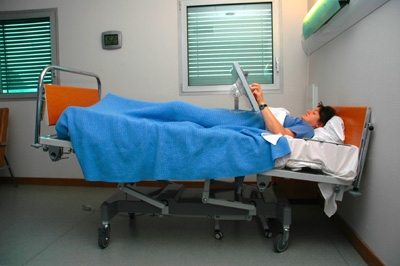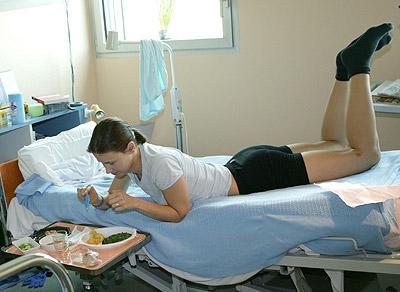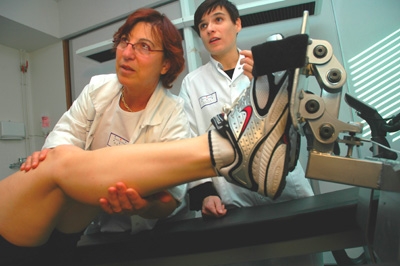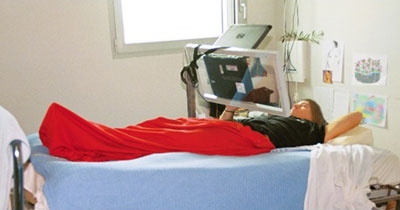6 October 2005
2nd campaign underway
The 2nd phase of the WISE* experiment is now underway, with all of the female volunteers confined to a bedrest position at the Medes space clinic in Toulouse since 1 October.

As during the 1st phase of the experiment from April to June, the 12 volunteers will be lying head-down on a bed tilted 6° from horizontal so that their body weight is no longer exerted along the longitudinal axis.
This position produces physiological modifications of the kind experienced by astronauts in space.
The study will evaluate the role of nutrition and physical exercise regimes in countering the harmful effects of prolonged periods of weightlessness simulated by bedrest.
Autumn lying down

After 20 days, the 1st 2 were put in the bedrest position on 26 September, where they will stay for 60 days.
All activities—meals, leisure, washing and so on—will be performed lying down.
The volunteers have been divided into 3 groups.
The 1st will take a dietary supplement; the 2nd will do regular physical exercise; and a 3rd will be the control group.
The study will thus be able to determine which parameters most affect astronaut health.
The 1st will take a dietary supplement; the 2nd will do regular physical exercise; and a 3rd will be the control group.
The study will thus be able to determine which parameters most affect astronaut health.

This 2nd campaign is intended to confirm or invalidate data obtained during the 1st phase, and to measure the effects of weightlessness on bones, muscles and the locomotor and cardio-vascular systems.
It will also enable new physiological countermeasures and psychological adaptation methods to be evaluated over a long period.
Few women have flown in space, so the way the female body reacts to weightlessness is poorly understood. The WISE programme therefore aims to prepare for long-duration spaceflights by female astronauts.
The WISE study is a joint initiative of the Esa, CNES, the Nasa and the Canadian Space Agency (CSA).
* WISE : Women International Space Simulation for Exploration
